- Home
- David Dalglish
Wrath of Lions Page 11
Wrath of Lions Read online
Page 11
“You will get what we discussed,” said Matthew. “When I make a deal, it is final.”
“I know,” Romeo said with a grin. “Which is why we came to you first.”
They released each other’s hands and stepped away. Cleo came up and patted his brother on the shoulder while Bren struggled to rise from his chair. Moira appeared by his side and helped him stand. Matthew hoped his bodyguard hadn’t lost too much blood to recover. Though an oaf, Bren really was the best protection money could buy. He nodded to both of them, and they started for the curtain.
“Oh, dear Matthew, one more thing,” Cleo sang out before they left the room.
“What is it?” he asked.
“Do you still have the monstrosity your great-grandfather crafted for Karak when the Mount Hailen armory first opened?”
“The sword? Yes, I have it still. Why do you ask?”
“We wish to include that huge blade in our deal. If it would please you, of course. You can pack it in the crates with the others.”
Matthew shrugged.
“Fine. It’s an eyesore anyway. But why?”
Romeo laughed. “Let us say we intend it as a gift for a giant.”
CHAPTER
6
All had been calm for hours on end. The birds in the trees tweeted; the insects chirped; the water in the stream flowed in a steady, calming rush. Bardiya’s felt connected to those birds, those insects, the fish that darted through that water. In this isolated patch of forest outside of his village of Ang, he felt completely at peace while making his morning prayers.
It was true he missed the soul tree, the oddity of nature that sprouted in the plains bordering the Gods’ Road, but the journey there and back took at least half a day. As the new spiritual leader of his people, in the wake of his parents’ death, he could not afford to be away for so long. Ang and the whole unofficial province of Ker needed him.
A tickling sensation overcame him, interrupting his prayers. He opened his eyes, his body tingling all over, and looked down at his giant hands. They were open in his lap, resting atop his bulbous knees. A brightly colored caterpillar inched across his left palm. On his right perched a butterfly, its gentle wings splayed out, displaying blocks of vibrant orange and yellow.
“Why, hello there,” he whispered. He lifted his hands to get a closer look at the two creatures. The insects were illustrations of perfection—each part of them had a design, a purpose. They were the embodiment of the life cycle, childhood on the left, adulthood on the right. All Bardiya had to do to bring the circle to a close was curl his fingers into fists.
Instead, he blew gently across his right palm, sending the butterfly’s wings flapping as it rose into the air. The caterpillar he urged to crawl onto the bark of the spruce tree behind him. He then leaned forward, dipped his fingers into the bubbling stream, and splashed cold, refreshing water on his face.
Raised voices pulled him away from his meditations. He lifted his head, water dripping from his chin, and spotted two dark figures swiftly maneuvering down the vine-covered cliff face on the other side of the stream. The interlopers’ flesh was dark like his, and one of them held a thick walking stick to offset a pronounced limp. He knew them immediately—Gordo Hempsmen and Tuan Littlefoot. He could tell by the way they carried themselves. Bardiya prided himself on his attention to detail. There was not a man or woman among his people whom he could not identify simply by gazing at his or her feet.
Gordo and Tuan reached the bottom of the cliff face, stopping on the rocks that formed the opposite bank of the stream. Gordo leaned against a tree, his mouth set in a grimace. His hip had been badly injured in the mangold grove the day Bardiya’s parents were slaughtered by the elf, Ethir Ayers, and his henchmen. Though Bardiya had mended the man’s wound as best he could, it remained painful. “You will limp the rest of your days,” he’d told him, “but at least you will not need a cane.”
Bardiya craned his neck, staring at the shoulder wound he had incurred that same day. He touched the spot, an eight-inch lump of scar tissue, and offered a silent prayer to Ashhur.
The two men stared at him from across the stream. Bardiya braced his right hand on the ground and rose to his feet. His body was wracked with another spasm of pain as he moved. It was the ache of growth, a sensation he’d come to both honor and deride over the many, many years of his life. Just like his faith, his form never ceased to expand. His height had reached eleven feet, dwarfing each and every one of his people and making him nearly as tall as Ashhur himself.
“How are Tulani and Keisha?” he asked Gordo as he cracked his sore back.
“They are fine,” the man replied. “Just as they were when you asked yesterday.”
“Each day carries its own burdens and joys,” said Bardiya.
Gordo shifted his weight from one foot to the other. “I’m sorry. I do appreciate the concern, my friend.”
“There is no need to apologize.”
Tuan stepped forward, kneeling before the stream.
“Bardiya, your presence is required in the village square,” he said.
“Very well. What is this about?”
“A few things, actually,” said Gordo. “A group of men returned from a hunting trip two days ago, telling wild tales. Then two girls who wandered close to the Rigon came running home with reports of soldiers marching on the other side of the river. We would have ignored both reports if Onna Lensbrough had not run up to the rocks this morning, after fishing, with a similar tale. Tuan decided we should call an assembly, if only to quell the peoples’ fears, so I did.”
“A smart decision,” Bardiya said.
“Thank you, Bardiya,” Tuan said, bowing low.
“Please, do not bow,” Bardiya said. “Save any reverence you would show me for Ashhur himself. I am only a servant among you all.”
Tuan looked embarrassed as he rose to his feet and said, “I’m sorry.”
Bardiya laughed heartily. “Think nothing of it, Tuan. Now let us go so I may speak with our people.”
He stepped across the stream in a single stride and followed Gordo and Tuan back up the steep cliff. Once they reached the top, they exited the thin line of trees. A seemingly endless sea of swaying prairie grasses opened up before them, concealing the way back home.
For a normal human, the trek from Ang to the secluded forest would take forty minutes. On his own, given the immense length of his legs, Bardiya could make it in half that. In this instance he took it slow, shortening his strides so he could stay with Gordo and Tuan. He would not show them disrespect by leaving them behind.
When they finally arrived at the village, hundreds of people awaited in the center square. Ang was a quaint village, dotted with simple yet durable wooden shelters sealed with a thick mixture of pine sap and clay. The few tents were used to shield the village’s reservoirs of food from insects and other predators. Bessus and Damaspia had quickly learned that any shelter they built would have to be constructed of solid wood to endure the unpredictable weather on Dezrel’s lower west coast, especially the massive storms of the late summer months.
The layout of the village followed no particular pattern; there were homes built wherever there was space for them. The whole of the village was now an immensely wide clearing given the fact that most of the trees had been felled to build those many homes. The only true property people had were the shelters in which they lived. All the other land, including the many gardens dotting the landscape, was communal. There was no trade or commerce or coin; every man and woman was a healer, a craftsman, a hunter, a fisherman, a farmer.
The center square—an ample, grassy field near the thin layer of forest bordering the coast—was the only place where construction was prohibited. That square was where the people gathered during times of celebration or mass prayer, when game or large fish were roasted over the great cookfire in the center. It was also where the populace gathered during dire times, of which there had only been three in all of Bardiya’s life. The fi
rst was when the decision had been made to respectfully ask the Wardens to leave Ker fifty years before, the second in the aftermath of the deaths of Bessus, Damaspia, and the five others who had perished in the mangold grove, the third to announce the arrival—and acceptance as equals—of a band of refugee Dezren Elves from the Stonewood Forest. It saddened Bardiya to think of the disagreements during that last meeting.
A great many people milled about their homes as he walked through the village, and he spied the Dezren elves lingering around their huts at the far edge of the settlement. When he came to the center square, he found a large gathering of villagers murmuring loudly. They formed a massive semicircle around the firepit, gazing at the newcomers with expectant eyes. Gordo and Tuan stepped aside, allowing Bardiya to walk between them. He found his close friend Ki-Nan Renald, a tall, athletic man of thirty with skin as black as night, standing among the ranks. Bardiya regarded him with a nod. Ki-Nan was good with crowds. If things became unruly, he would help keep everyone calm.
When he reached the center, the mass of humanity shuffled to their feet, closing the circle. They looked so small to him, countless children pleading with him to quell their nightmares. In that moment a feeling of superiority came over him, a sensation he quickly quashed by falling to one knee and hunching over so he could converse with them at eye level. It was a painful position, but that was a small sacrifice to make in the name of equality.
He spoke the words of assembly—“With Ashhur in our hearts, our troubles are met”—and the meeting began.
A pair of identical young men, barely out of their teens, pressed two fingers to their lips, the Kerrian symbol of truthfulness.
“I am Allay Loros,” said one of them.
“And I am Yorn, his brother,” said the other.
“I know you well,” Bardiya told them, gesturing for them to proceed.
Allay cleared his throat. “Five days ago my brother and I were hunting an antelope through the grasslands,” he said, his tone confident yet respectful. “We were near the Gods’ Road, very close to another settlement. The antelope was acting as if it were spooked. We had lanced it with a spear earlier in the day, but still the creature ran without tiring, as if no injury had befallen it.”
“We hid behind an outcropping of stone,” Yorn the twin continued, “and watched it gallop across the road and disappear into the hills. We were about to make pursuit when a great shape walked toward us, dust billowing all around him.”
“It was Ashhur,” said Allay.
“Are you certain?” Bardiya asked.
“As certain as if it were our own father,” Yorn insisted.
“What did he do?”
Yorn said, “He stopped in the middle of the road, where the antelope had disappeared into the forest. He snapped his fingers and it emerged, walking right up to him. Ashhur touched the beast on the nose, and it collapsed dead, right then and there.”
“Then others emerged from the east, so many that the land was swallowed by their ranks. Thousands of them. Perhaps hundreds of thousands—we couldn’t tell. The noise was unbearable. Ashhur handed a group of men the antelope, then called out. A whole school of the beasts appeared from behind us, undaunted by the crowd. All of them were slain by spears, then taken for feasting. After that, Ashhur and a strange-looking man on horseback set off again.”
“Strange looking? How so?” asked Bardiya.
“Strangely shaped,” said Yorn. “Red hair, hunched back, but his arms might have been as big as yours.”
Bardiya nodded. So it had started. Ashhur was gathering his children, and Patrick was with him.
“Did you reveal yourselves?” he asked.
Allay shook his head. “We remained hidden until nightfall, then ran back home.”
“Yet,” said Yorn, “I believe our god saw us. His eyes glanced toward our rock at one point, and I felt all numb inside. Allay said he felt it too.”
To be expected, thought Bardiya. He looked to the two young girls who had stepped forward with the others.
“Sasha, Marna, please tell me your tale.”
The youngsters, both of them eight years old, exchanged a look and smiled. Little Sasha raised her chin with pride. Her skin was much lighter than most who resided in Ang, like cream sprinkled with cinnamon.
“Marna don’t talk,” she said in her angelic voice. “She don’t know how.”
Bardiya ruffled her short, curly hair. “That is fine. You can tell it.”
“Well, me and Mar were out with Father getting pretty flowers. By the skinny river near Ashhur’s big house. Red ones, yellow ones, purple ones—all the pretty ones. We had three baskets full. It was great, but no one was there.”
“Safeway was empty?”
The girl nodded, then her cheeks flushed. She looked to her friend, who shifted from foot to foot with downcast eyes.
“Go on, Sasha,” Bardiya said.
“I can’t,” she said quietly. “I’m scared.”
The crowd around them murmured.
He touched the side of her face, his hand larger than her head. “Go on. There is nothing to fear. I will not hurt you.”
The little girl nodded. “The village was empty, but I heard people yelling,” she said, her voice shaking. “Lots of them. Mar screamed and fell. I was in the big fat trees, and when I ran to her, I saw scary men on the other side of the skinny river. They had shiny clothes and spears.”
“What were they doing?”
Sasha shrugged. “Walking. They had horses. And carts. And…and…”
“And what, my dear?”
She leaned in close to him and, her tiny voice trembling with terror, said, “Heads on sticks.”
Bardiya pulled back and smiled at her, humming a soft, sweet tune. He then beckoned the silent Marna forward and wrapped both of them in a hug. By the time he released the girls, they had regained their composure, and Marna grinned at him from behind tears. Their parents came to retrieve them, their whispered thanks barely audible above the crowd’s murmurs, and then Onna Lensbrough took center stage.
“My Lord, I need to tell you my tale,” he said hurriedly.
Onna was a man fast approaching agedness, with a long white beard and deep crow’s feet around his eyes. He was rarely seen in Ang, preferring to sail his Kind Lady across the Thulon Ocean’s open waters. To find him freely on dry land, before such a crowd, was a bad omen.
Bardiya ran a hand through his own close-cropped hair. “How many times have I told you not to call me ‘Lord,’ Onna? Ashhur is the only lord of this land. Now tell your story.”
“Okay. So I was…well, I was out trawling…you know, the bluegills are migrating north this time o’ year. Then I see these two ships—largest ones I ever seen. Three sails each, tall as the biggest pine tree in Stonewood. They float right on by me like I warn’t even there…almost hit the Kind Lady. Would’ve tore her in two.”
Bardiya frowned.
“It’s not rare for ships to sail through our waters,” he said.
“Yes, but…this was different. I was out by the Canyon Crags, near the islands. Never seen a boat try and get through that suicide run. And they was going too fast—almost hit one o’ the crags, matter o’ fact. Too close to shore.”
“What were they after?”
“Don’t know…but they flew the Lion’s flags.”
A chorus of gasps sounded. Bardiya looked for Ki-Nan’s face, but his friend had blended into the crowd.
Onna continued. “Most ships from Neldar that come our way have different banners like…the hook and fish one. Never seen one with the Lion on it.”
“What’s it mean? Who were they?” the man asked.
It means Neldar moves at last, Bardiya thought. Karak sails to Mordeina, and war. He didn’t speak his guess, however; though he had heard of the brother gods’ clash in the delta, he could not know for certain if it had happened. Yet these tales, not worrisome when taken by themselves, drew a frightening portrait when put together. Ashhur had
turned against his declaration of nonviolence, and now all of Paradise would suffer.
We will not take part, he told himself. No matter what occurs, we will remain as our god decreed for us to be. It is the only pure way, the only right way.
The throng pressed in on him, working itself into a panicked state. He heard Ki-Nan’s voice rise above the others, pleading for patience and silence. Bardiya lifted himself from the ground and towered above them, holding out his arms and humming, beckoning wordlessly for them to calm themselves. They eventually did, dropping back into a hushed state. He lowered his arms to his sides and spoke loudly and clearly, hoping that even those who had not joined the assembly would listen.
“My people,” he cried, “I love you, and Ashhur loves you. These events may indeed indicate troubling times ahead, but there is no reason for you to panic. You are safe here. Our land is remote and sprawling, and it is our own. Our laws govern it, laws passed down by Ashhur himself.”
“But what of the rumors?” someone shouted. “What if Karak wants to kill us all?”
“Then so be it,” he said, earning gasps from the crowd. “Should the brother god march on us, we shall lay down our arms and praise our Lord. We shall praise him as he was and honor his teachings. But it will not come to that. The desert is too wide, the terrain too formidable, for an army to risk traversing it. And our shores are protected by high cliffs and a rocky coastline. I believe that if we remain true to ourselves, we shall be safe. If Karak comes for Ashhur, it is because Ashhur has turned his back on his own teachings. We will not. We will remain perfect as we have always been, and no one shall trouble us.”
The murmurs grew louder by the time he finished, and he gestured for the people to disperse. Rather than quelling their fears, his words seemed to have cast them into a deeper state of despair and worry. Not that he could blame them. Deep down, Bardiya feared he was wrong.

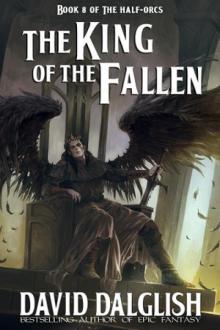 The King of the Fallen
The King of the Fallen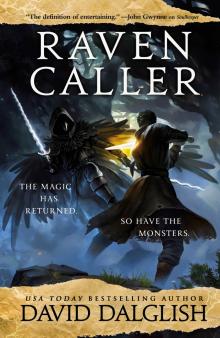 Ravencaller
Ravencaller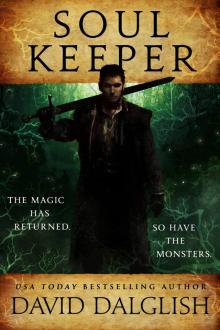 Soulkeeper
Soulkeeper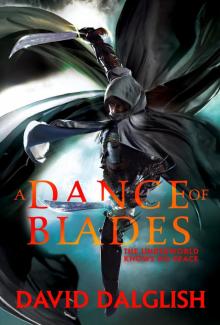 A Dance of Blades
A Dance of Blades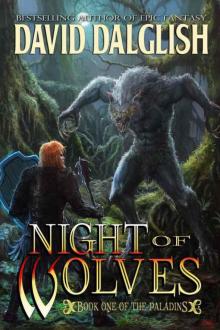 Night of Wolves p-1
Night of Wolves p-1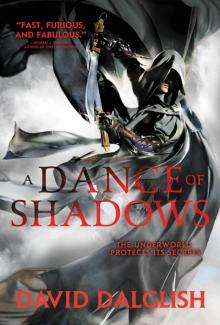 A Dance of Shadows
A Dance of Shadows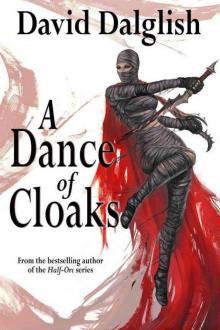 A Dance of Cloaks s-1
A Dance of Cloaks s-1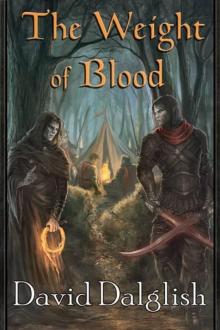 Weight of Blood
Weight of Blood A Dance of Chaos
A Dance of Chaos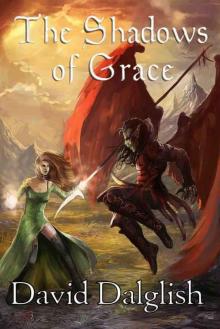 The Shadows of Grace h-4
The Shadows of Grace h-4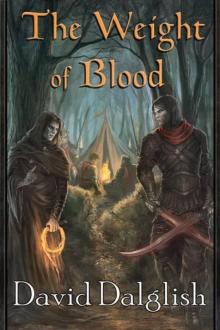 Weight of Blood h-1
Weight of Blood h-1 The Broken Pieces
The Broken Pieces The Shadowdance Trilogy
The Shadowdance Trilogy A Dance of Death (Shadowdance Trilogy, Book 3)
A Dance of Death (Shadowdance Trilogy, Book 3)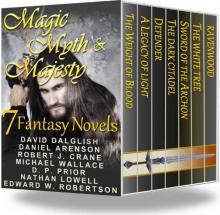 Magic, Myth & Majesty: 7 Fantasy Novels
Magic, Myth & Majesty: 7 Fantasy Novels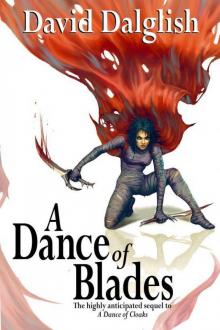 A Dance of Blades s-2
A Dance of Blades s-2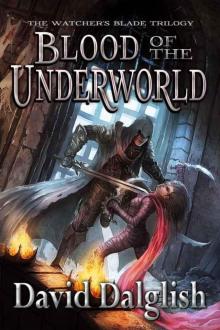 Blood of the Underworld
Blood of the Underworld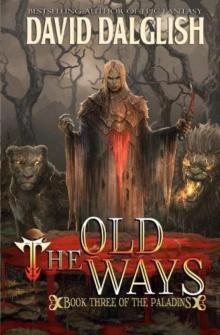 The Old Ways p-3
The Old Ways p-3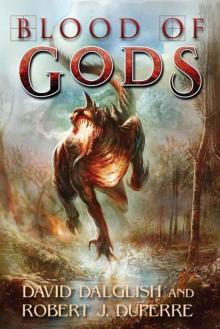 Blood Of Gods (Book 3)
Blood Of Gods (Book 3)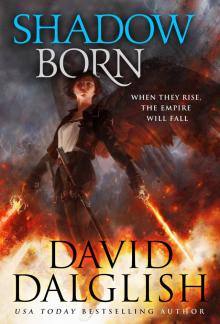 Shadowborn
Shadowborn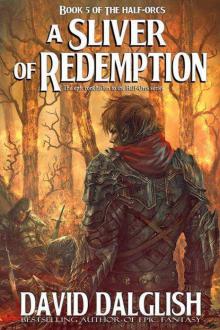 A Sliver of Redemption (Half-Orcs Book 5)
A Sliver of Redemption (Half-Orcs Book 5)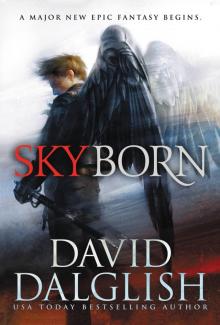 Skyborn
Skyborn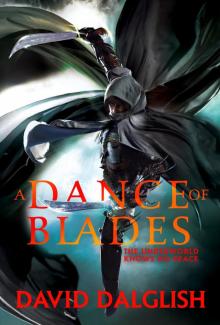 A Dance of Blades (Shadowdance 2)
A Dance of Blades (Shadowdance 2)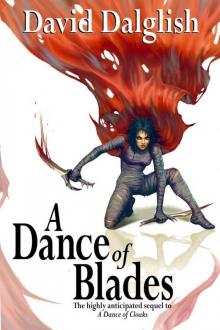 A Dance of Blades, (Shadowdance Trilogy, Book 2)
A Dance of Blades, (Shadowdance Trilogy, Book 2)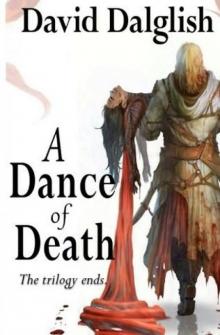 A Dance Of Death s-3
A Dance Of Death s-3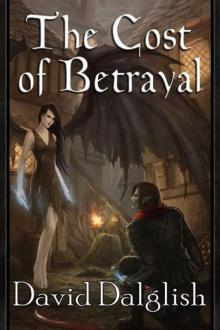 The Cost of Betrayal (Half-Orcs Book 2)
The Cost of Betrayal (Half-Orcs Book 2)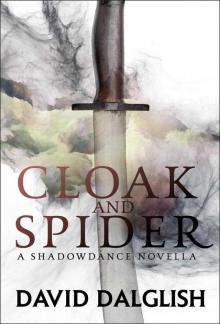 Cloak and Spider: A Shadowdance Novella
Cloak and Spider: A Shadowdance Novella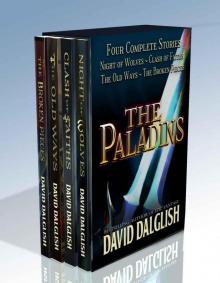 The Paladins
The Paladins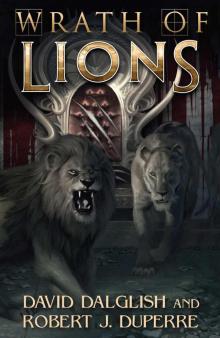 Wrath of Lions
Wrath of Lions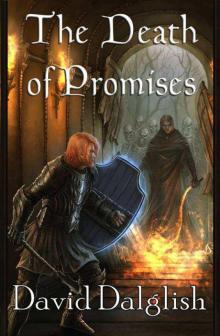 The Death of Promises (Half-Orcs Book 3)
The Death of Promises (Half-Orcs Book 3)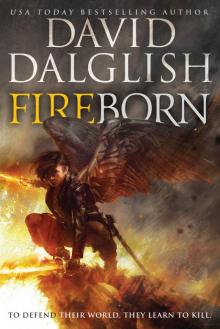 Fireborn
Fireborn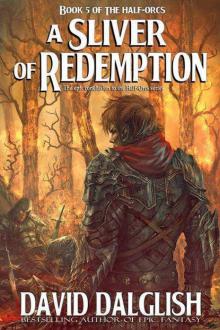 A Sliver of Redemption h-5
A Sliver of Redemption h-5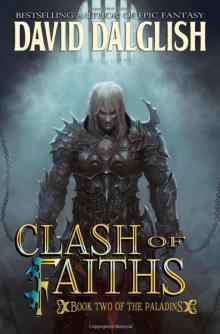 Paladins 02 - Clash of Faiths
Paladins 02 - Clash of Faiths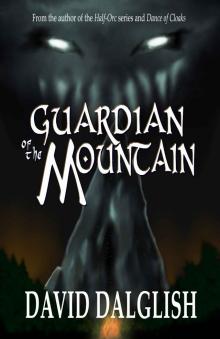 Guardian of the Mountain
Guardian of the Mountain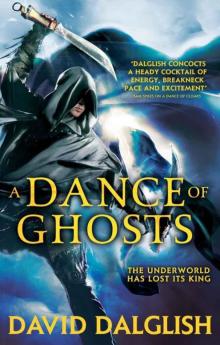 Shadowdance 05 - A Dance of Ghosts
Shadowdance 05 - A Dance of Ghosts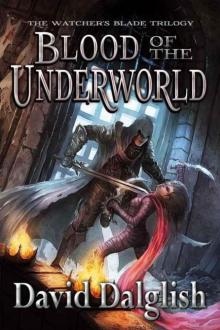 Blood of the Underworld twb-1
Blood of the Underworld twb-1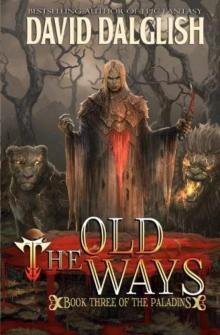 Paladins: Book 03 - The Old Ways
Paladins: Book 03 - The Old Ways Dawn of Swords
Dawn of Swords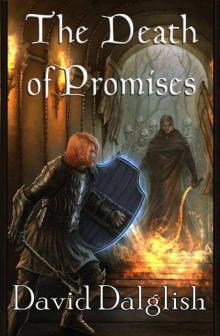 The Death of Promises h-3
The Death of Promises h-3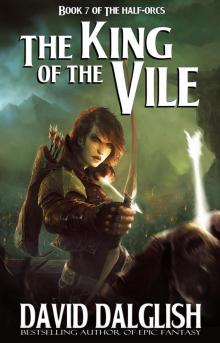 The King of the Vile
The King of the Vile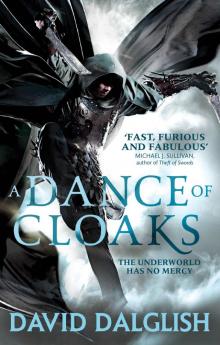 Shadowdance 01 - A Dance of Cloaks
Shadowdance 01 - A Dance of Cloaks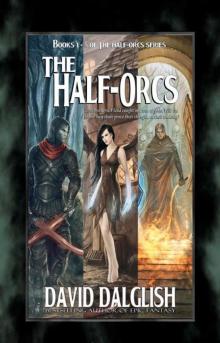 The Half-Orcs: Books 1-5
The Half-Orcs: Books 1-5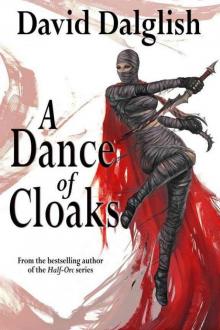 A Dance of Cloaks
A Dance of Cloaks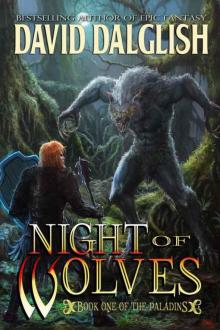 Paladins 01 - Night of Wolves
Paladins 01 - Night of Wolves A Dance of Chaos: Book 6 of Shadowdance
A Dance of Chaos: Book 6 of Shadowdance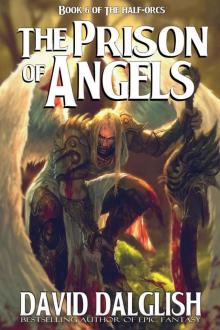 The Prison of Angels h-6
The Prison of Angels h-6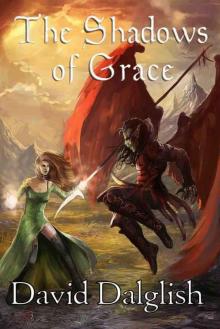 The Shadows of Grace (Half-Orcs Book 4)
The Shadows of Grace (Half-Orcs Book 4)